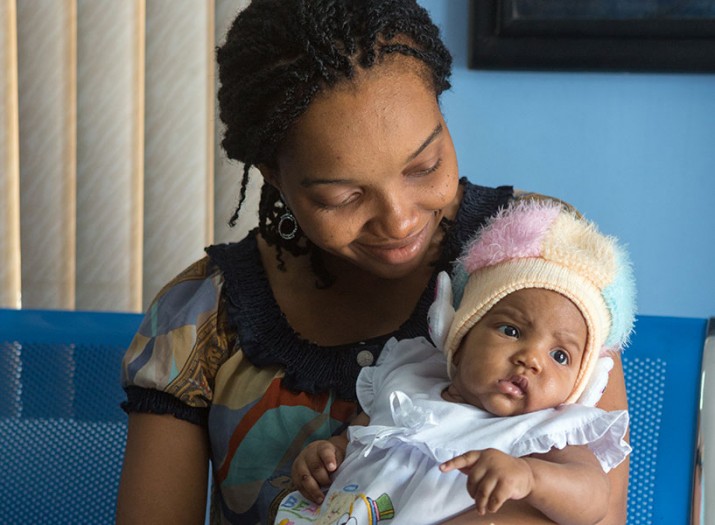E2A: Saving Mothers and Giving Life in Nigeria
E2A: Saving Mothers and Giving Life in Nigeria

Despite Nigeria’s growing economy and significant cadre of well-trained health providers, Nigerian mothers and their newborns continue to die during and directly after childbirth at an alarming rate. According to a 2013 Demographic and Health Survey, Nigeria’s maternal mortality rate is one of the highest in the world—576 deaths for every 100,000 live births—and 37 out of every 1,000 babies die as newborns.
In Nigeria’s Cross River State, the US Agency for International Development (USAID)-funded Evidence to Action Project (E2A), in partnership with the Saving Mothers, Giving Life initiative, will replicate an evidence-based, comprehensive maternal and newborn health intervention that will deliver high-impact, integrated maternal and newborn health services in all public and private facilities providing labor and delivery services.
Saving Mothers, Giving Life was successfully piloted in Uganda and Zambia and resulted in a 35 percent decline in mothers dying as a result of childbirth at participating facilities. It is supported by public- and private-sector donors, including USAID, and constitutes a suite of evidence-based interventions to improve the quality and coverage of maternal and newborn health services, which are integrated with HIV services, to address the three delays to women accessing life-saving care:
- decision to seek appropriate care;
- reaching care in a timely manner; and
- receiving quality, respectful care at the facility, with a focus on time of labor, delivery, and the first 48 hours postpartum.
With this initiative and in partnership with relevant stakeholders, E2A aims to achieve a 30 percent reduction in maternal mortality and a 20 percent reduction in newborn mortality by September 30, 2017 at facilities in Cross River State. Cross River is a state in the Niger Delta that does not benefit from the oil revenues accrued by its neighboring Delta states.
Through Saving Mothers, Giving Life, E2A will seek to ensure that every woman has access to clean and safe delivery services, and in the event of an obstetric complication, life-saving emergency care within two hours. The initiative will consist of the following components:
- Improving the quality of maternity care and institutional delivery services, including emergency obstetric and newborn care.
- Ensuring women and their newborns receive key health services in an integrated manner, including counseling on self-care, knowledge of danger signs, and the importance of birth planning; access to HIV counseling, testing, treatment and PMTCT services; prevention and treatment of malaria; treatment of anemia; postabortion care; and postpartum family planning.
- Strengthening community and facility health information systems to capture, evaluate, and report birth outcomes.
- Increasing use of life-saving innovations, such as Manual Vacuum Aspiration, antenatal corticosteroids, chlorhexidine cord care, kangaroo care, and simplified antibiotic regimens for neonatal sepsis.
E2A will work closely with national, state, and local officials to support the institutionalization of supportive policies and standards, adapt training materials, train national master trainers on use of high-impact interventions including postpartum family planning, and improve government coordination. At the community level, E2A will improve referral systems and focus on community outreach to counsel women, families, local leaders, and community organizations on the importance of high-impact interventions, such as four antenatal care visits and birth planning, and generate demand for services.
To launch this work, E2A supported a national stakeholders meeting in November 2014 with representatives of the Federal Ministry of Health, Cross River Ministry of Health, implementing partners, USAID, UN agencies, and professional associations to sensitize them and garner support. In addition, E2A supported an extensive assessment across 271 public and private health facilities in nine local government authorities in southern Cross River State from December 2014-January 2015. Results from that assessment are forthcoming and will inform a detailed, evidence-based implementation plan.